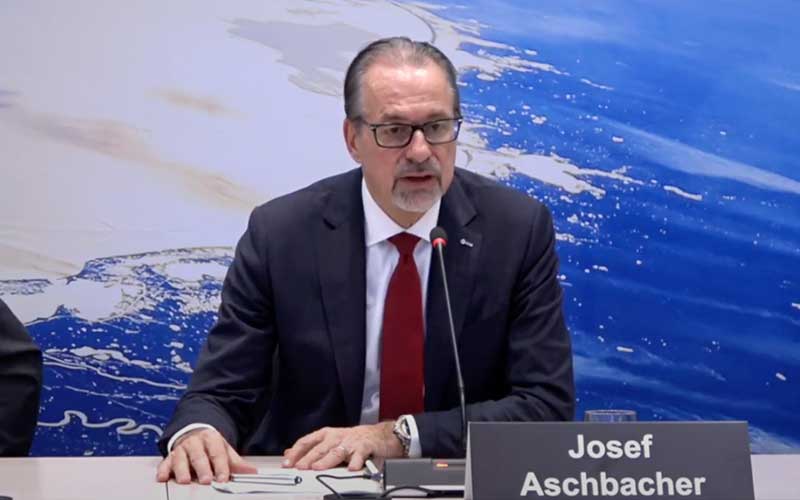
Speaking at a press conference following the 330th ESA Council Meeting, ESA Director General Josef Aschbacher reaffirmed the importance of the agency’s geographical return (geo-return) policy amid recent calls for its abolition.
“The fact that geo-return is absolutely important for the Member States has been confirmed,” said Aschbacher. “So, there’s no question about whether geo-return should or should not be applied. It’s a very fundamental rule and understandably something that was very strongly supported.”
At its most basic, the ESA geo-return policy mandates that companies in Member States receive contracts proportional to their country’s financial contributions to the agency. While the policy advocates for a 1:1 ratio between a Member State’s value of awarded contracts and its total contributions to the agency, in practice, ESA’s geo-return policy achieves a return ratio of between 0.9 and 0.95 for all Member States over a period of five years.
Despite not reaching that 1:1 return ratio, the policy offers a significant incentive for Member States to contribute generously to ESA’s budget. It can, however, add unnecessary complexity to programmes, driving up costs and straining timelines.
Over recent years, the geo-return policy has faced growing criticism, particularly in light of delays to the Ariane 6 programme. A report commissioned by the European Union and authored by former European Central Bank chief Mario Draghi highlighted the policy as a major obstacle to Europe’s ability to adapt to rapid advancements in the global launch services industry. Draghi argued that the rigid allocation of contracts under geo-return hindered efficiency, stifled innovation, and prevented the agility needed to remain competitive.
An Evolution of Geo-Return
Leading up to the 330th Council Meeting, ESA Member States approved the creation of a “Tiger Team” tasked with reviewing a potential evolution of the agency’s geo-return policy. The Tiger Team, comprising representatives from industry, Member States, and the ESA executive, presented its findings during the Council Meeting on 16 and 17 December.
While the team reaffirmed the importance of the policy, it also provided recommendations focused on simplifying the implementation of geo-return, reducing the number of return lines, and introducing more flexible, envelope-style programmes. These changes aim to maintain the core principle of fair return to Member States while ensuring compatibility with competition and industrial efficiency.
In addition to proposing a revised geo-return policy, which Member States will vote on at the agency’s Ministerial Council meeting later this year, ESA has also suggested further relaxing the policy for critical programmes.
Following the 329th Council Meeting in October 2024, ESA Director of Space Transportation, Tolker-Nielsen, explained that for the agency’s European Launcher Challenge—designed to act as a catalyst for the development of new, competitive European launch service providers—“there will be no constraints on geo-return.”
In response to questions from European Spaceflight, Tolker-Nielsen clarified that a “Fair Contribution” concept would be employed. This would “provide industry with the freedom to form consortia according to programme needs, free from geographical return constraints, while ensuring a balanced geo-return through mechanisms like contribution alignment based on procurement outcomes.”




